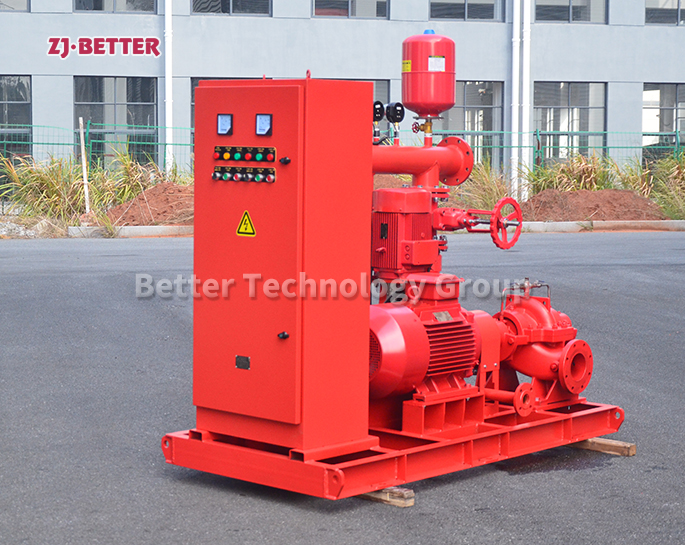Everything You Need to Know About Fire Pump Corrosion Prevention
Fire pump corrosion can lead to reduced efficiency, higher maintenance costs, and even equipment failure. Understanding corrosion prevention is essential for ensuring the longevity and reliability of fire pump systems. Here's a comprehensive guide:

1. What Causes Corrosion in Fire Pumps?
Corrosion occurs when materials react with environmental factors, such as water, oxygen, and salts, leading to material degradation. Common causes in fire pumps include:
- Poor water quality: High salinity or chlorides.
- Electrochemical reactions: Different metals in contact can create a galvanic reaction.
- Moisture and oxygen: Constant exposure in damp environments accelerates rusting.
2. Effects of Corrosion on Fire Pumps
- Reduced Efficiency: Corrosion can block or restrict water flow.
- Equipment Damage: Pitting and scaling weaken pump components.
- Higher Maintenance Costs: Frequent repairs and part replacements.
- System Failure: In extreme cases, the fire pump might fail during an emergency.
3. Corrosion Prevention Strategies
A. Material Selection
- Corrosion-resistant alloys: Stainless steel and bronze are commonly used.
- Coatings and linings: Apply epoxy coatings or rubber linings to protect surfaces from corrosive water.
B. Water Treatment
- Water quality monitoring: Test for pH, chloride levels, and contaminants.
- Chemical treatments: Add corrosion inhibitors like phosphates to neutralize harmful elements.
C. Cathodic Protection
- Sacrificial anodes: Use zinc or magnesium anodes to attract corrosive elements, sparing pump materials.
- Impressed current systems: Apply a small electrical charge to prevent oxidation.
D. Regular Maintenance
- Routine inspections: Look for rust, leaks, or scaling.
- Cleaning and flushing: Remove deposits or debris that could accelerate corrosion.
- Replace worn parts: Promptly replace corroded components to prevent further damage.
E. Proper Installation and Storage
- Environmental control: Reduce humidity levels in the pump room.
- Avoid galvanic corrosion: Ensure compatible metals are used in assembly.
4. Standards and Compliance
Ensure your fire pump complies with international standards like NFPA 20 and certifications such as UL or FM, which often include requirements for corrosion prevention.
5. Innovations in Corrosion Prevention
Modern technology offers advanced solutions, such as:
- Nanotechnology coatings: For superior resistance.
- Predictive maintenance sensors: To detect corrosion early.
- Composite materials: Lightweight and corrosion-resistant alternatives to metals.
Conclusion
Preventing corrosion in fire pumps involves a combination of material selection, water treatment, protective systems, and maintenance. By taking proactive measures, you can ensure the reliability and longevity of your fire pump system.
Need corrosion-resistant fire pump systems? Contact Better Pump for NFPA 20-compliant and UL-listed solutions that stand the test of time!

.png)
.png)

.png)


